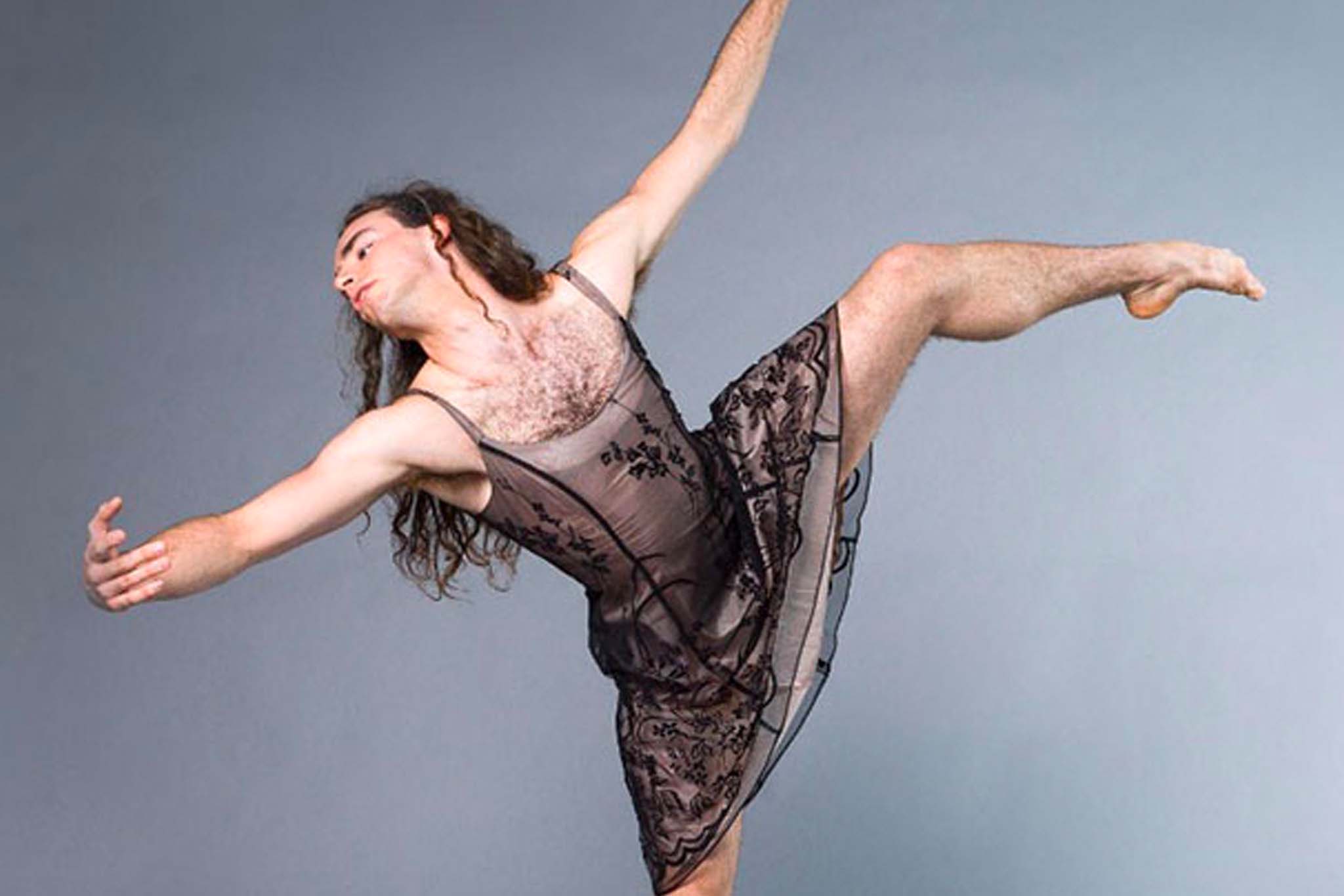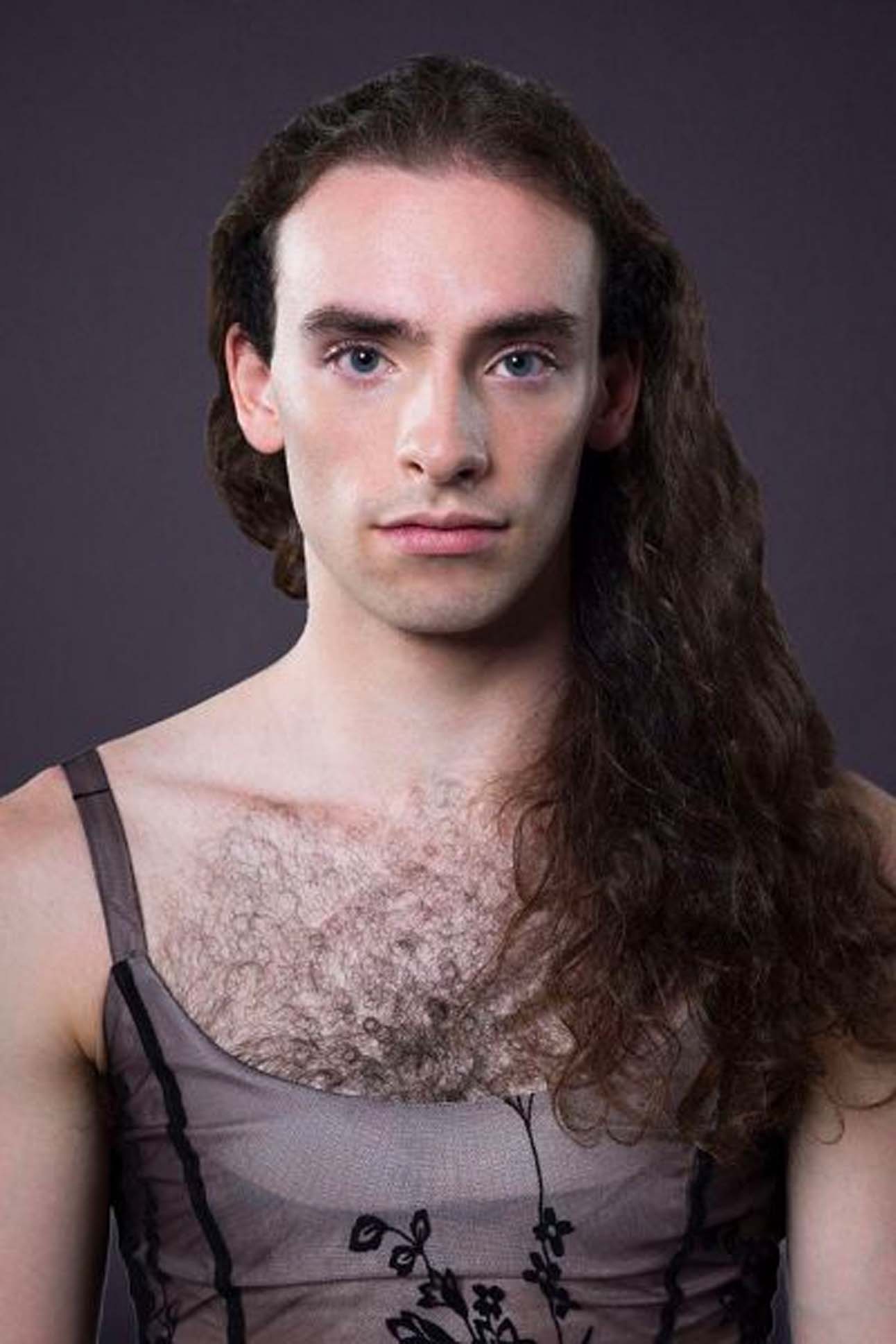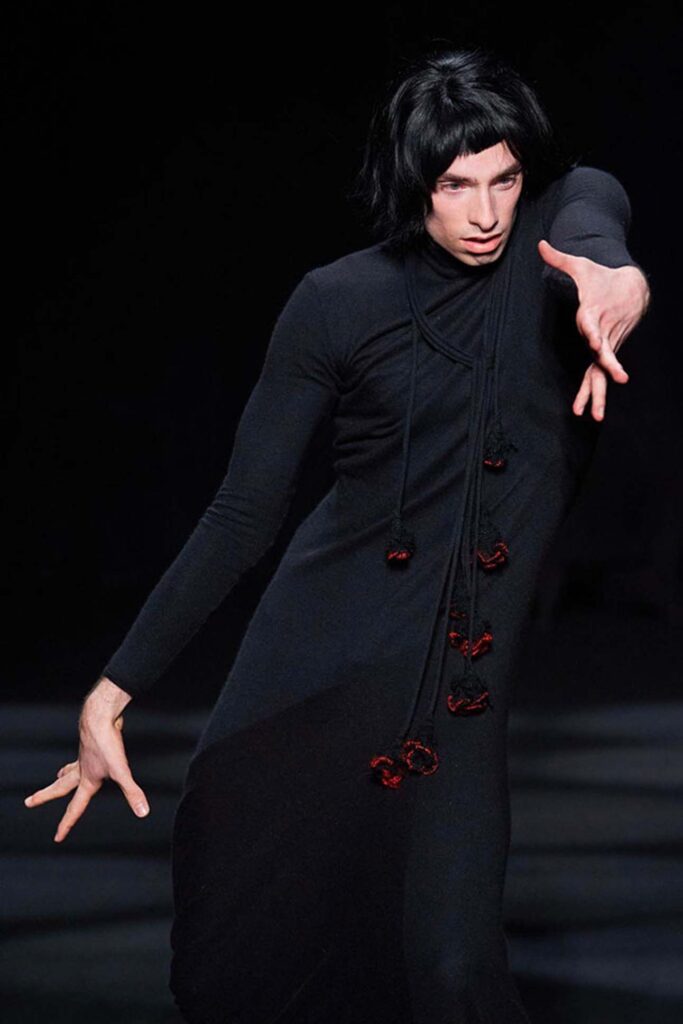Muse of the Month: Aaron Choate, Dancer & Photographer
Images by Michelle Reid
For dancer and choreographer Aaron Choate, performance is a way to bare their soul. A movement is not just an expression of their physicality. It’s also a visceral interpretation of their psychology.
“There was just something about being on-stage where I felt like I could show my queerness,” they say. Thus, the stage transforms into a platform to express their gender fluidity. “I felt like I could show the audience not just myself as a male, but also as this emotionally-dense woman,” they say.
This intimate approach to performance informs their debut season for Hubbard Street Dance Chicago. Here, we delve into the intricacies of movement and expression as a dancer, tapping into the nuanced creativity necessary in Choate’s practice.
Q&A
What creative rituals do you have before, while, or after choreographing?
I lip sync a lot. I imagine that there is a camera close to my face, capturing my experience of whatever music I’m listening to, lyrics or not.
It helps me figure out what I want to be seen in the piece. I can figure out what parts of me I want to express, and then that’s what I bring out in the dancers. Lip syncing is often the first iteration of that expression.
I don’t think it’s common with a lot of dancers. If you go to a jazz concert, you might see dancers using their faces a lot. But if you go to a contemporary concert, you don’t see a lot of activity in the face. Regardless, I’m obsessed with looking at contemporary dancers’ faces. There’s something to me about the face that’s just really important, even if they’re not moving it much. How they react to a movement that’s sharp or a movement that feels open — the subtlety of it can be really interesting to me. I think it’s so hard to use your face well. But if your reactions are honest, then it can’t go wrong.
I also write things down constantly. It’s not like poems per say, it’s more just ideas and thoughts. I’ll see a door close a certain way and it will make me feel something. And I’ll write, “The door closing on Third Street.” I don’t know why I want to write that down, but I just have to.
Was there a time in your career when you felt discouraged and how did you get past it?
I’m discouraged every day. There’s not a day in dance that I’m not discouraged, at least for a moment. Because what we’re doing is impossible. It’s not always impossible looking, but what we’re doing is crazy. There’s always a moment where you can’t do something that you want to be able to do. Or you can’t do something in the way or with the freedom that you want to do it. And it’s hard.
But then I look at dancers that are older than me, and I see how they deal with disappointment and frustration. Of all the people I’ve met in my life, I don’t think I know people that are better at letting go of failures and mistakes than experienced dancers. Because every day, every minute, you fail in dance. And you just have to let go of it, say whatever to it, and keep going.
I was confused for a long time. I thought I had to listen to the daily failures. But what I needed to do was move towards what I wanted to say and do with my body, rather than look around at all the messy scraps of mistakes.
The way that dancers can move through emotion in their body is amazing. You have to be able to constantly let your emotions change, let go of emotions that aren’t supporting you to dance or to do physical tasks on a 5, 6, 7, 8.
There are times when you want to know exactly how to correct something. A lot of my time in college was spent doing that and it was useful. But at this point, my body has more information than my brain.
What’s the best piece of creative advice you’ve ever received?
I owe so much of what I know to Risa Steinberg, my mentor and my teacher when I was at Juilliard. She encouraged us to take criticism not as judgment, but just as information.
I feel like I could share a million things that she has said, but nothing would cover the scope of what her advice has given me. The best gift you can receive is the key to your own brain — and that’s what she gave to me.
What scent reminds you of home?
Dirty dogs (laughs) because our dogs were never clean. Old hardwood floors. Cut grass. And public pools.
What is something you’ve recently revisited or rediscovered?
Stevie Wonder’s Songs in the Key of Life. I got so into that album my first year of college. And now, I’m getting into it in my first year out of college. I think it’s an album for my transitions.
There’s also this movie Nocturama that I can’t get away from. It’s a French film about these really young terrorists. They don’t ever explain why they’re bombing their city. But it’s about people my age, and I can see their nerves as if it were me going up to a hotel room or handing off a fake ID. Also, it has the best pin drop of all time. It uses Willow Smith’s Whip My Hair as buildings are exploding — and, somehow, it works.
See more of Choate’s work during the 2022 — 2023 season at Hubbard Street Dance Chicago.
5 Musings of the Month
- See water once a day. There’s something about the people who live in Chicago and their relationship to Lake Michigan that’s really beautiful. It feels like everyone’s just going through their days in the city and, when they need it, they walk 15 feet to the water. They see it and remember, and then they can go back into their lives.
- Creativity as a worksheet. I have to remember that I don’t always have to come up with an idea in an aha-lightbulb-Einstein way. Sometimes it’s best to make creativity feel like a worksheet. Like asking yourself a question or a task: “I have four dancers, they have to stay in a box and the movement has to be angry.” And then just see how I deal with that. Creativity isn’t always something that just falls from the sky.
- Avoiding protective strategies. There’s something about coming out of the pandemic where we all found ways to protect ourselves, like spirituality or meditating or this and the other. Now I’m learning some of those strategies that I found really helpful during the pandemic are becoming inhibiting. I’m thankful for them because they helped me at the time. But now, for me, it’s time to not be protected.
- Letting change progress me naturally. I’m just going to let time change me for now.
- Make it punk rock. There’s some part of me that likes to feel a little bit punk rock. But no part of the way I live in the world exudes that. I’m a very careful and safe person, very meticulous. But internally, just feeling a bit punk rock every day is nice for me.



